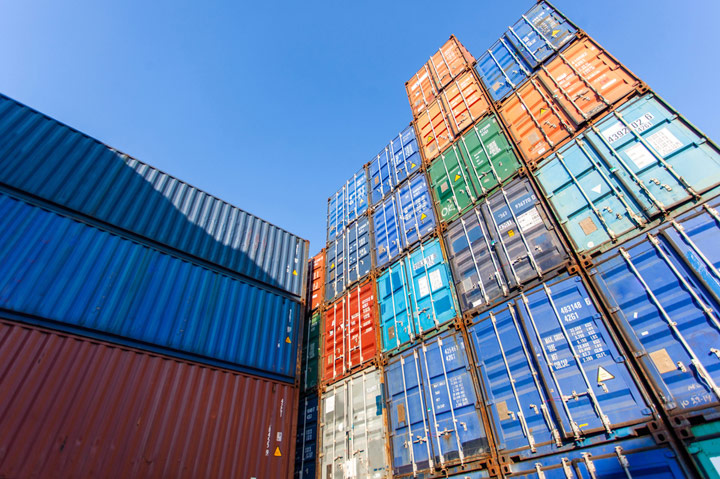News November 17, 2021
Citing Progress, Top Ports Delay Cargo-Container Fines
The decision from the ports of Los Angeles/Long Beach comes amid a drawdown of some of the container backlog at the docks. Such port congestion has impacted the promo products supply chain.
The sister ports of Los Angeles and Long Beach, through which 40% of imported cargo containers enter the United States, have decided to delay issuing fines against shipping companies that allow cargo containers to stack up on the docks.
Port leaders were expected to begin levying the fines on Monday, Nov. 15, but postponed doing so until at least Nov. 22, saying progress has been made in clearing long-idling containers. Since the fines were announced in late October, the ports have experienced a 26% decline in what was described as old cargo on the docks, according to port executives.

“There’s been significant improvement in clearing import containers from our docks in recent weeks,” Port of Los Angeles Executive Director Gene Seroka said in a statement. “I’m grateful to the many nodes of the supply chain, from shipping lines, marine terminals, trucks and cargo owners, for their increased collaborative efforts.”
Port congestion has been one of the key choke points in the supply chain disruption that’s been impacting the promotional products market and other industries. Progress on moving more containers out of port means more imported goods are getting on their way to warehouses and stores for stocking and sale.
While fines could begin on Nov. 22, it’s also possible the ports could again delay the charges if progress continues.
That could be good news for promo and other industries, as some fear domestic truck and rail transporters will simply pass along the fine costs to the companies that rely on them for cargo transport. Such a negative development would further escalate the expense of building inventory levels, another factor in broader inflationary pressures that could contribute to price increases on promo products down the line.
Announced on Oct. 25, the fines, if implemented, would charge cargo carriers $100 for each imported container that remains on the docks for more than three days if it’s scheduled to be transported by rail.
If the cargo is to be moved by truck, then carriers have nine days before the penalty fee takes effect. If the cargo continues to occupy dock space, the fee will increase by $100 per container per day.
While progress has been reported on moving containers, the logjam of ships at Los Angeles/Long Beach has continued. On Nov. 16, the Marine Exchange of Southern California reported there were a total of 179 total ships at Los Angeles/Long Beach. Of those, 114 were at anchor or loitering. Prior to the COVID-19 pandemic, it was uncommon for even one ship to be at anchor at the ports.
RPT 11/16: 179 total ships inport LA/LB incl. 114 at anchor or loitering & 65 at berths. Of the 179, 116 are container ships incl. 86 at anchor or loitering & 30 at berth. 62 vessels loitering; 51 container ships, 6 tankers, 2 bulk, 3 general cargo.
— Marine Exchange (@MXSOCAL) November 17, 2021
More: https://t.co/5aY5tY73aY pic.twitter.com/Xc7tpm3lbl
The supply chain disruption being experienced by the promo products industry and others in 2021 has been unprecedented.
In addition to soaring costs for shipping/ocean freight and importing delays caused by everything from the port congestion to lack of space on cargo ships, issues have included unfavorable monetary exchange rates, reduced factory productivity in China, rising raw-material prices, insufficient labor levels and inadequate domestic transport capacity.
For promo, the repercussions in 2021 have been inventory shortages, higher product prices, lower customer service levels, longer production times, shortages of important decorating materials like screen-printing ink, and delays in order delivery.
Nonetheless, demand for promo products has increased, and distributors collectively grew sales on a year-over-year basis in both the second and third quarters of 2021. The recently released ASI Distributor Quarterly Sales Survey shows that promo distributors accelerated sales, on average, by 18.4% in Q3.
